Tracking basal body temperature can be a useful tool that can help you to uncover hypothyroid and even hyperthyroid patterns, just by taking your temperature at the same time every morning for five consecutive days.
Heads Up Health makes it easy to track, trend and compare your basal body temperature readings alongside all your other health metrics. Start your free 30-day trial using the button below. Or, read on to learn more about basal body temperature and how to track it.
[maxbutton id=”5″]
Basal Body Temperature
![]() When tracking basal body temperature, we want to track your resting temperature which is a reflection of your metabolic activity with minimal influence from outside factors like digestion, exercise, stress, etc. After you’ve been asleep for several hours, the body has ideally settled into its resting metabolic pattern, so we have a way to compare your temperature with as little interference as possible.
When tracking basal body temperature, we want to track your resting temperature which is a reflection of your metabolic activity with minimal influence from outside factors like digestion, exercise, stress, etc. After you’ve been asleep for several hours, the body has ideally settled into its resting metabolic pattern, so we have a way to compare your temperature with as little interference as possible.
Thyroid Symptoms
Most everyone knows someone with a thyroid condition. Maybe you even suspect that you have a thyroid condition, but haven’t made an appointment with your doctor yet or your labs have all come back normal. If you suspect that you may have a thyroid condition, these are some of the symptoms that you may be experiencing.
Hypothyroid Symptoms (more common)
- low body temperature-feeling cold in a warm room, or having cold hands and feet consistently.
- apathy or depression
- lack of motivation
- fatigue
- constipation
- inability to lose weight or weight gain
- frequent colds
- swelling in ankles
- lack of libido
- hair loss
- insomnia and more.
Hyperthyroid Symptoms (less common)
- increased heart rate
- anxiety
- insomnia
- frequent and loose bowel movements
- sweating
- unintended weight loss and more.
Hypothyroidism is so prevalent that its become a thing we just expect to have happen to us at some point, and we often accept that these symptoms are just a consequence of getting older. Symptoms are messengers from our body, alerting us to a system that is out of balance. The thyroid influences almost every cell in the body, so when it’s not supported, the symptoms can present in other areas of our bodies. Using the basal body temperature readings developed by Dr. Barnes can help you to hone in on a potential thyroid condition and allow you to seek the help you need to support your thyroid.
![]()
The basal body temperature test can be used whether or not you’ve had a thyroid test recently. Thyroid hormones are made in the thyroid, but most of the active (energy) thyroid hormone T3 is converted from the inactive (storage) T4 form in other parts of the body, which means that thyroid function is about more than just the TSH hormone levels in the blood. Other sites of conversion include the gut (20%), liver (40%) and peripheral tissues (20%). A compromise in the liver or gut can cause a decrease in the conversion of the inactive thyroid hormones to the active thyroid hormones. Another factor to consider is vitamin and mineral deficiencies as the thyroid uses iodine, selenium, zinc, magnesium, the amino acid Tyrosine, as well as vitamins A, C, D, B2, B3, B12 and healthy fats to function optimally.
Because your gut health is a major site of thyroid conversion, Tracking your Bristol Stool Chart can be another piece to the puzzle when trying to figure out a thyroid pattern. Thyroid dysfunction can alter bowel movement patterns as well, which can clue us in to the possibility of a thyroid issue.
The body can compensate for quite a while on reduced resources before the blood will show a significant change to be diagnosed with a thyroid disorder. Tracking your basal body temperature for 5 days can give you a better understanding of a trend for either hypo or hyper thyroid patterns, so you can further explore paces where the breakdown may be happening. Hypothyroid is much more common than hyperthyroid, but either can occur. For more info on what labs are important to ask for when you talk to your doc, check out Amy Berger’s article on Thyroid testing here. Though she talks about it in the context of a low carb diet, the testing info will apply to anyone who thinks they may need a thyroid panel worked up.
HOW to take your Basal Body Temperature for tracking.
![]()
Prepare the night before you want to start tracking you basal body temperature. You’ll need a thermometer (glass is preferred as it’s more accurate than digital for this purpose-avoid mercury and opt for a Geratherm glass thermometer which you can find here), your phone/device for timing and documenting your results.
*Note – if you sleep with a heated blanket, or multiple heavy blankets, you’ll want to remove them for the nights that you’ll be collecting your data, to get an accurate reflection of your body temp.
- Shake down your thermometer so that it’s ready for morning. Place all supplies by the bed where you can reach them with minimal effort in the morning.
- When you awaken, you will take your thermometer and place it in your armpit for minimum of 5 min (glass will need at least 4 min for accuracy), first thing in the morning. Try to move minimally so as to not rev up your body temp. After 5-10 min, record your temperature and go about your day as normal.
- Repeat this process for 5 consecutive days.
- Ladies, you will want to avoid starting or collecting data on day 19-22 of your menstrual cycle as there are fluctuations due to other hormones as well as related to ovulation, which we will talk about in a subsequent basal temperature tracking article.
How to interpret your readings.
Dr. Barnes found that a normal resting body temp should be between 97.8-98.2 degrees Fahrenheit. If it is consistently lower, then there is a trend toward a hypothyroid (decreased function) pattern. If consistently above 98.2, then this indicates a trend for more of a hyperthyroid (increased function) presentation. If results are mixed, both high and low, this is often more indicative of a primary adrenal stress pattern, as the adrenals and thyroid are closely linked, which would allow for the variation in body temperature.
![]()
What to do with your results
If you find that your temperatures indicate the possibility of thyroid or adrenal stress, take your readings in your Heads Up Health app to your functional health doctor/provider so you can further investigate where the breakdown could be and support for healing.
[maxbutton id=”5″]


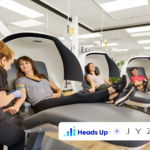



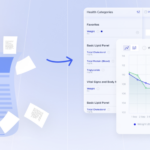
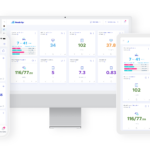


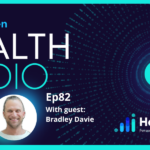
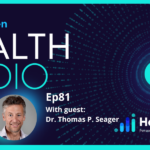
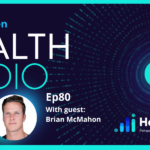
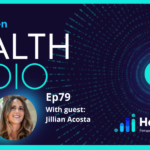





Thanks for sharing all about thyroid in the article.
My temp during the day is 96.6 , I have Not checked in the mornings yet , but I would like to purchase a glass themonitor .
This is my first time to submit a question
Walmart has these thermometers also.
I just saw your comment. There are out there easier thermometers to use (digital thermometers used to check the ovulation) other than the mercury ones that are more difficult to read.
I was told by my ND that digital thermometers are not reliable enough. I had to do my 5 days all over again and bingo, different result……. Use the recommended thermometer and place it in your armpit. There is a reason for all the recommendations I am sure.
I have been using a digital thermometer under the tongue..
my temp. has been 97.1 for 3 days and 96.9 on the forth day. I am currently on Levothyroxine but struggle with weight and dry hair & skin. What do you suggest?
I can sympathize. I’m in the same situation. My levo dose was upped to 112mcg earlier this year. I’ve been taking my temp for the last week and it’s constantly 97.3. Digitally. Did you end up finding a solution?
Have you ever tried dessicated thyroid to support that as well?
My partner, my mother, and I all use ERFA dessicated thyroid 30 mg 1-2 per day depending on the person and it has really helped for all of us to get a bit warmer and more stable in our energy.
Hope that helps!
Hi Carolyn,
I struggled for 2 years – Levothyroxine didn’t help. Look into Kelp and Bladderwrack (I take 1 of each in pill form, but you can find in flakes, it’s just seaweed so provides iodine). Also, make sure you are eating fats (coconut oil, olive oil, avocado, grass-fed butter or ghee). Try to incorporate at least 1 tsp of any of these in bkfst/lunch/dinner. Fat is incredibly important for Thyroid function. You will feel better soon. It’s also important to avoid all processed foods and sugar. Eat majority of fruit, leafy greens and vegetables like potatoes/yams/carrots/squash + grass fed or pastured animals (3oz/meal) or pastured eggs) + the fat already mentioned. If you feel tired, REST. Take naps, only do walking or yoga as exercise. Listen to your body. You should be better if you take the seaweed and diet recommendations. Be patient.
Where is the article about tracking during cycle/hormone changes for women? Thanks in advance!
Hi Amber! Thank you for the question. I think the article/podcast you are looking for is here: https://headsuphealth.com/blog/podcast/how-to-lose-stubborn-body-fat-with-hormone-imbalance-and-weight-loss-expert-karen-martel/ Kind regards, Brian
Hi!
In the mornings, my body temperature is usually 36,7 – 36,8 degrees. But when I check it in an other times of the day (noon, afternoon, evening), in many times it is 36,5 / 36,4. Could it be hypothyroidism, when it is not low in the morning?
My temp is consistently 97 degrees F in the morning, using glass non mercury thermometer.
Menooausal, so not sure when my cycle is, if affecting. Also, I have physical neck injury causing pinched nerves and muscle spasms throughout body, could these be affecting blood flow and thus a new normal base line body temp? Blood work is already indicating possible hypothyroid and or hashimotos hypo – thyroiditis? Alternative therapy / naturopath using biofeedback scan indicates possible thyroid parasite. I do not have any symptoms of either hypo or hashimotos. Two years ago we suspected adrenal fatigue post military deployment (multiple vaccinations and anti malarial Rx Doxycycljne, 1 year, long term use) and recent head, neck injury (one of many in life) then 8 months after deployment, struck with PEs, unprovoked blood clots in lungs. Found possible source of clots, clot in ileac vein (IVCS), stent placed in ileac vein at femoral vein. 20 months later, no significant resolution, body not dissolving PEs, clots in lungs. Significant stress both physically and mentally. Additional Dx of APS, MALS / MACS and significant adverse reactions to most medications (which we recently are noticing has been a lifelong issue along with gut issues similar to celiac / gluten, soy, MSG, dye and cellulose sensitivities).
Taking blood thinner Warfarin and aspirin, 325 mg, no other Rx meds. Taking numerous pure herbal supplements and essentisl oils to maintain health in a covid environment. No other health issues or concerns. 54 year old, W/F, previously very active, very healthy, height, weight proportional. Not under or over weight usdues, ever in life.
Since the advent of highly accurate and quick reading infrared thermometers, wouldn’t they be best for under arm tests?
Nice blog thanks for sharing this informative blog with us.
Thank you for sharing your knowledge. The blog was beneficial.
Nice Blog. Thank you for sharing.
Nice Blog. Thanks for sharing all about thyroid in the article.